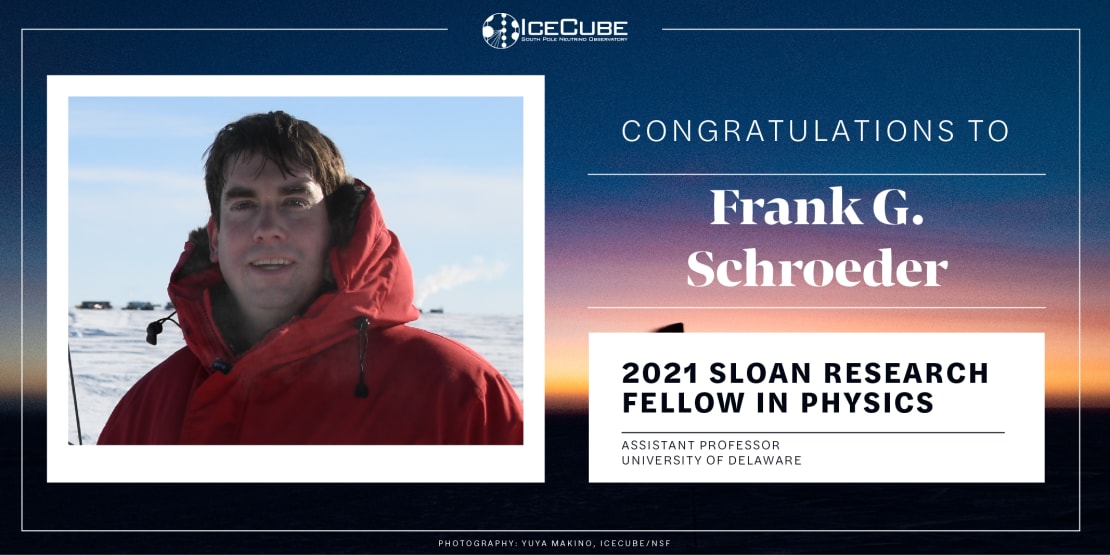
IceCube collaborator Frank G. Schroeder, assistant professor at the Department of Physics and Astronomy of the University of Delaware and the Bartol Research Institute, has been selected as a 2021 Sloan Research Fellow in Physics as announced today.
According to the Alfred P. Sloan Foundation, the Sloan Research Fellowship is one of the most prestigious awards available to young researchers. The two-year fellowships are awarded every year to about 128 outstanding young researchers from the United States and Canada who have the potential to revolutionize their fields of study. Winners receive a $75,000 fellowship that can be spent to advance the fellow’s research.
Astroparticle physicist Schroeder is working on the detection of ultra-high-energy cosmic rays. The enormous energies of these cosmic particles far exceed the reach of human-made particle accelerators. Discovering their origins—the natural particle accelerators in space producing these cosmic particles—is the main goal of multimessenger astrophysics.
During the past decade, Schroeder made essential contributions to the development of the radio technique for the measurement of cosmic rays. In particular, Schroeder and colleagues could show that digital antenna arrays can increase the accuracy for the mass composition of cosmic rays. This is one of the key parameters to study possible scenarios for their origin. A complementary approach is the measurement of other cosmic messengers, in particular high-energy neutrinos that are much rarer than cosmic rays but may reveal their sources directly. “In the end, both approaches need to provide a consistent picture on nature’s most energetic particles,” Schroeder says.
While he works on several cosmic-ray observatories including the Pierre Auger Observatory and Tunka-Rex, during the last three years Schroeder has focused his research mainly on the IceCube Neutrino Observatory at the South Pole. He hopes to transform IceCube’s surface array, IceTop, into the most accurate detector for the highest energy cosmic rays originating from our own galaxy by adding radio antennas to the enhanced particle detectors. This effort is a strong collaboration with the Karlsruhe Institute of Technology in Germany, where Schroeder works as a part-time scientist in addition to his faculty position at the University of Delaware.
IceCube collaborator Carlos Argüelles also received a 2021 Sloan Research Fellowship in Physics. Previous Sloan fellows from the IceCube Collaboration include Reina Maruyama (2014), a former WIPAC scientist who is now a professor at Yale University, Kendall Mahn (2016), a professor of physics at Michigan State University.